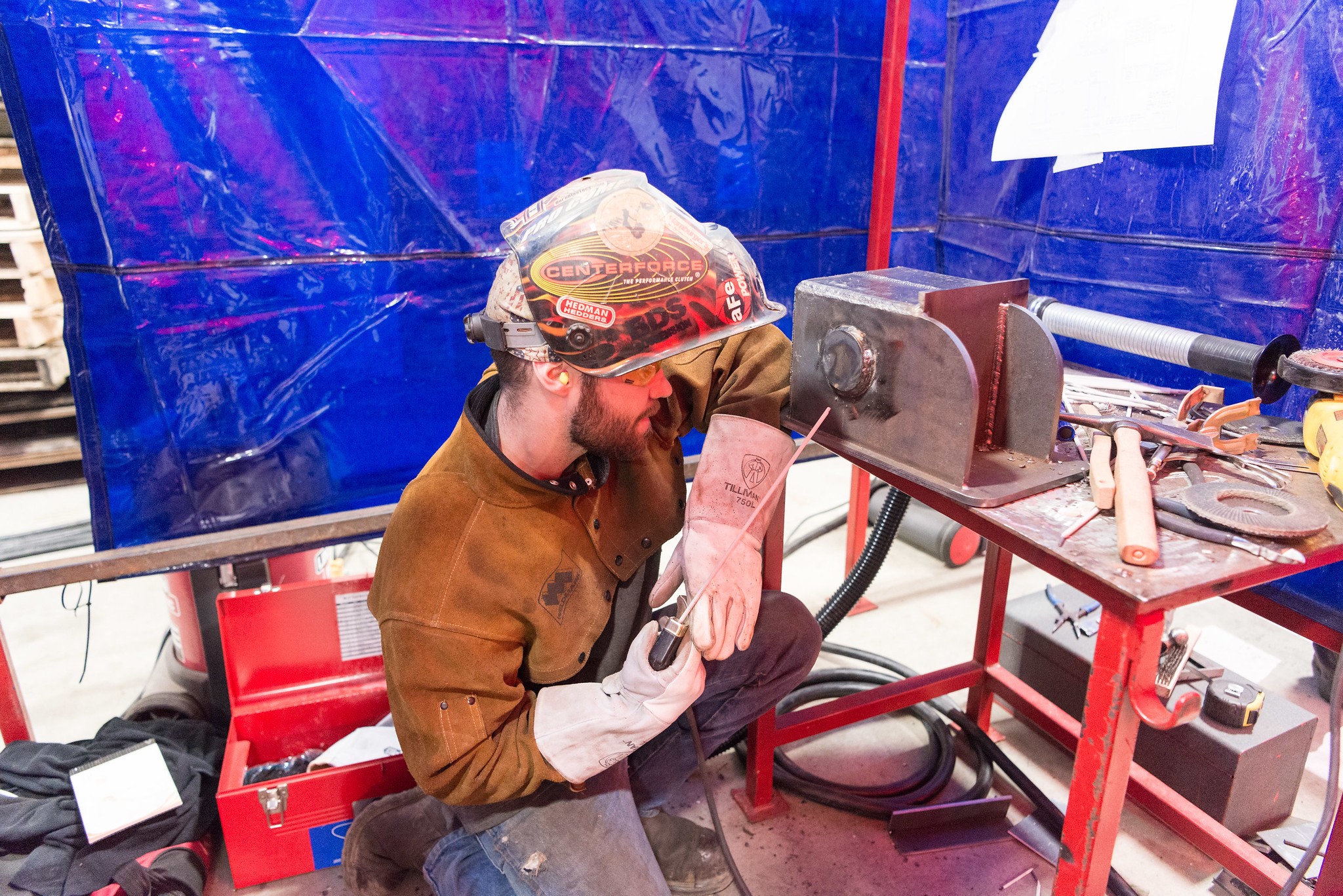B.C. sees surge in skilled trades apprenticeship participation
The province saw major gains amongst women and Indigenous people.

A student practices their welding skills at the British Columbia Institute of Technology. – BCIT
Key Takeaways:
- Participation in the skilled trades increased by 8% overall in B.C.
- The biggest gains for underrepresented groups were women and Indigenous people, which increased 37% and 22%, respectively.
- The province’s latest data shows 83,000 new job openings in the trades are expected in the next decade.
The Whole Story:
Apprenticeship in the skilled trades is on the rise in B.C.
SkilledTradesBC, a recently revamped organization that oversees the province, released its annual report, highlighting a record number of apprentices, youth, Indigenous people and women participating in the skilled trades in the province in 2022/2023 fiscal year.
“We are in a critical time to diversify and grow the skilled trades workforce in B.C. as we face a skilled labour shortage and anticipate 83,000 jobs in skilled trades over the next decade,” said Shelley Gray, CEO, SkilledTradesBC. “There is a place for everyone in skilled trades and we are excited to see a record number of diverse British Columbians exploring skilled trades as a means to support their families, build a successful career, and contribute to the communities that make this province our home.”
Highlights of the results released in SkilledTradesBC’s annual report include:
- 41,000 apprentices (+8%)
- 1,492 Indigenous people entering skilled trades (+ 22%)
- 1,072 women entering skilled trades (+ 37%)
- 10,018 youth participation in skilled trades enrollment (+14%)
Welder, carpenter and heavy equipment operator trades programs saw the largest increases amongst women and Indigenous people.
However, the organization did struggle with issuing credentials. The report noted that the economic shutdown and delays that occurred during the pandemic continued to impact the number of credentials being issued. The number of credentials issued to women and Indigenous people as well as overall number of certifications declined in the last year, resulting in the organization not meeting its performance goals.
Officials added that labour shortages have also created difficulties for apprentices and other trades workers to take time off to attend training and prepare to write their final exam.
In December 2022, SkilledTradesBC officially transitioned from Industry Training Authority to its new name, along with its expanded mandate from the Ministry of Post-Secondary and Future Skills (PSFS). SkilledTradesBC developed a new three-year strategic plan in response to the expanded mandate and Government’s principles and priorities.
The organization is also leading the implementation of Skilled Trades Certification, which was legislated in B.C. last december. The laws make it mandatory for workers to either be a registered apprentice or fully certified to work in specific trades, starting with the implementation of seven electrical and mechanical trades.
Officials say the Skilled Trades Certification aims to formally recognize the skills of current and future trades workers, raise the profile of the trades, and help to draw a more diverse workforce, ensuring they have the skillsets needed to adapt to industry changes over time.
SkilledTradesBC implemented customized supports to meet client needs, established a new Skilled Trades Certification Advisor team and expanded its Apprenticeship Advisor team.
Officials noted that B.C. has faced a tight labour market as it continues to recover from the impacts of the COVID-19 pandemic. According to the B.C. Labour Market Outlook: 2022 Edition, approximately 83,000 new job openings in the trades are expected in the next decade, primarily due to the retiring workforce and economic expansion.
